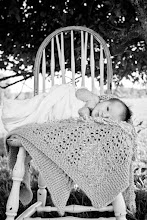I've been working with Wikis for about three years now. I'm trying to see how they can be useful to me as an educator and how I'd like them to be different to fit my personal and professional needs. My first impression of them was pretty negative, but the more I learn about them the more I believe that wikis, like podcasts, RSS feeds, and other web 2.0 technology, has many niches to fill. I still prefer using a webpage, but I"m open to exploring new wikis.
I tutored a student in 2009 in Social Studies. He was very reluctant to do much work, but he loved computers and web 2.0 technology. This was my first wiki, but really it wasn't too bad, except that my student didn't want to work on the wiki or any work for that matter. It bummed me out doing all this work, but, it was great practice in learning about wikis and learning how to create one. Another wiki in the making I created was for my professional teaching portfolio. This wiki can be viewed by the public, if they are invited. People cannot edit my wiki, they can only view it. It contains my teaching portfolio including: lesson plans, field placements, examples of my writing and research, book reviews, program ideas, newsletters, and other pieces that showcase my work and talents as an LIS student. It can be found at http://liztheloquaciouslibraianportfolio.wikispaces.com/
The wiki for our class that I visited for the St. Joseph's County Library at http://www.libraryforlife.org/subjectguides/index.php/Main_Page I think it is great that the library has this. It's actually quite organized and worthwhile. If I were from St. Joseph's area, I know just where to go to find out about my family history and genealogy. However, some other links are not as great quality as the genealogy link, such as resources on gardens.
So here I blog about my love & hate relationships with wikis. The bottom line is that I have high expectations for a wiki. I want it to have: organization, good quality information, all links working, easy navigation from page to page, consistent content coverage for all subjects and sub topics, and a useful scope. Maybe by a wikis nature, it can't have all these qualities, but I think it should. When wikis came onto the scene a few years back, people questioned their quality and reliability. I know, as a teacher, I did. But, I like that as wikis have evolved, new features have been added. I like that not everyone can instantly change the information, and that only certain people can access and edit a page. I LOVE that templates for wiki sites are efficient, user friendly, and organized. I also love that wikis are made in different formats that can be useful to a small business, note taker for a class, or a personal collection on materials, just to name a few. Since I created my professional portfolio wiki, even more wiki engines and free wiki spaces on the web have developed.
I think libraries can use wikis in many useful ways to generate excitement about their resources and programs. I think another very useful use of a wiki would be for publishing book, periodical, website, and web 2.0 technology reviews for teens, adults, parents and seniors. A local 'what's happening' page in the wiki would allow people to post events that are upcoming and it would be free advertisement. I think many people go to the library for 'how-to' help and a page on 'how-to' advice might be helpful and interesting. Aesthetically, a wiki can help give people of a community a sense of ownership and pride. If they are monitored and maintained, a public library wiki can be darn right interesting. The one mentioned above may not have the look of a library website, but its eclectic contents and contributions from the local community was pretty neat.
I know I should not simply say website or wiki, but I can do what I want. I still love the sleek look, organization, and design of websites. But, wikis can be useful too. I am sure to visit this topic at a later date.
This blog will explore some of my experiences as an LIS grad student at the University of Buffalo.

No comments:
Post a Comment